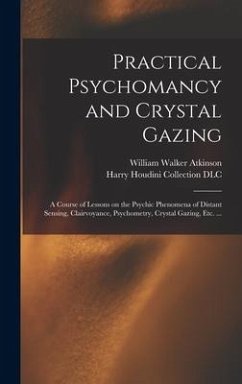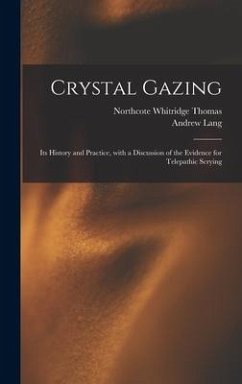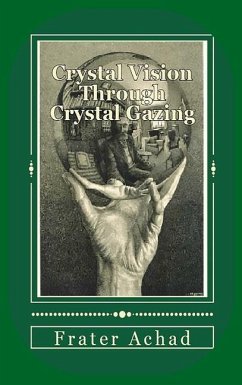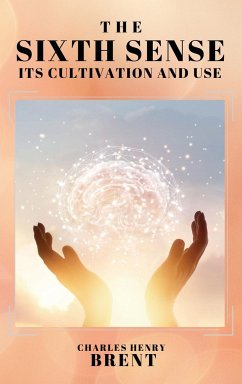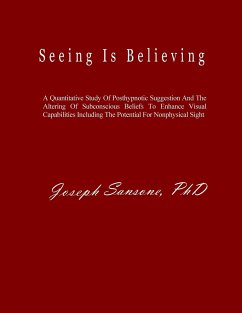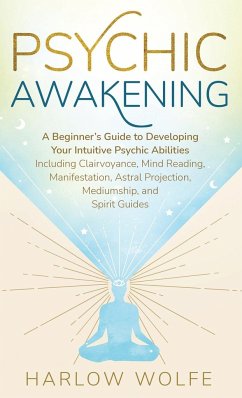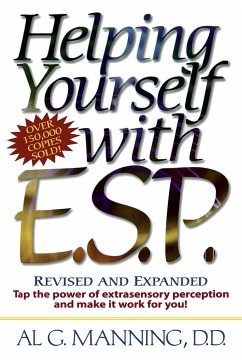
Practical Psychomancy and Crystal Gazing
A Course of Lessons on The Psychic Phenomena of Distant Sensing, Clairvoyance, Psychometry, Crystal Gazing, Etc.
Versandkostenfrei!
Versandfertig in 1-2 Wochen
16,99 €
inkl. MwSt.

PAYBACK Punkte
8 °P sammeln!
The word "Clairvoyance" is frequently used by people to designate some of the phases of Psychomancy, but strictly speaking this term is incorrect when used in this sense, the true occult meaning of the word "Clairvoyance," being "transcendental vision, or the perception of beings on another plane of existence-the seeing of disembodied souls, elementals, etc." And so, in this work, we shall consider the true phenomena of Clairvoyance, as distinct from that of Psychomancy.¿In this work, we shall regard as the true phenomena of Psychomancy, all the various phenomena known as Psychometry; Crystal...
The word "Clairvoyance" is frequently used by people to designate some of the phases of Psychomancy, but strictly speaking this term is incorrect when used in this sense, the true occult meaning of the word "Clairvoyance," being "transcendental vision, or the perception of beings on another plane of existence-the seeing of disembodied souls, elementals, etc." And so, in this work, we shall consider the true phenomena of Clairvoyance, as distinct from that of Psychomancy.¿In this work, we shall regard as the true phenomena of Psychomancy, all the various phenomena known as Psychometry; Crystal Gazing; Perceiving Distant Scenes; a perception of Past Events, and Indication of Future Events; either in the full waking state; the state of reverie; or the state of dreams.¿And, so this work will examine, consider, and explain, the various phases of phenomena above indicated-in short, the phenomena of "sensing" objects by means of Astral Senses, omitting the phenomena of Clairvoyance, or seeing disembodied souls, etc., which we regard as belonging to a different phase of the general subject, and which require special consideration and examination.






